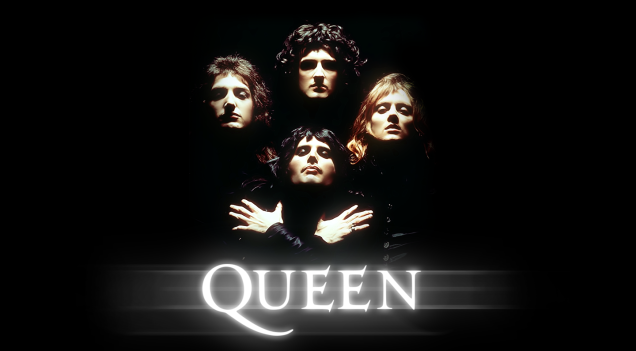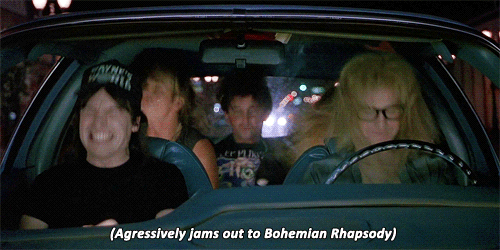For too long I have been silent on this issue. Queen’s 1975 hit single Bohemian Rhapsody is about Galileo. There, I said it. I’m fully aware of the backlash this post will bring. This is the hill I’ve chosen to die on. You may think I’m crazy, but they said the same thing about Galileo and they were wrong and he was right and that can only mean that I am right as well. Eppur si muove.
I will now break the song down verse by verse to defend my contention.
Is this the real life,
or is this just fantasy?
A blatant reference to Galileo’s 1632 book Dialogue Concerning the Two Chief World Systems in which he defended the reality of the heliocentric model against the geocentric fantasy land of Ptolemy.
Caught in a landslide,
No escape from reality.
Religious dogma is caught in the landslide of scientific progress triggered by the Copernican revolution from which it has no means of escape.
Open your eyes,
Look up to the skies and see
One has only to look to the skies, to the phases of Venus and movement of Jupiter’s moons, to see that Galileo is correct.
I’m just a poor boy, I need no sympathy,
Because I’m easy come, easy go,
Little high, little low,
Anyway the wind blows doesn’t really matter to me, to me.
An obvious reference to Galileo’s famous experiment in which he dropped spheres of different masses from the top of the Leaning Tower of Pisa to test Aristotle’s theory that heavier objects fall faster than lighter objects. It was easy to convince people of the theory, but it was also easy to disprove. Whether their mass is high or low, they all fall at the same rate. The slight irregularity in their fall times due to wind resistance doesn’t really matter, to Galileo.
Mama, just killed a man,
Put a gun against his head,
Pulled my trigger, now he’s dead.
The man is geocentrism and the gun is Galileo’s telescope.
Mama, life had just begun,
But now I’ve gone and thrown it all away.
Galileo’s mother is a metaphor for science. The life of modern science had just begun, but Galileo is about to throw his life away for it.
Mama, ooh,
Didn’t mean to make you cry,
If I’m not back again this time tomorrow,
Carry on, carry on as if nothing really matters.
Galileo says his goodbyes to science before facing the inquisition. If he is found guilty, it should carry on making discoveries without him.
Too late, my time has come,
Sent shivers down my spine,
Body’s aching all the time.
Goodbye, everybody, I’ve got to go,
Gotta leave you all behind and face the truth.
Galileo is getting old and is ready to leave the trolls and naysayers behind to face the truth (as I’m doing here).
Mama, ooh (anyway the wind blows),
I don’t wanna die,
I sometimes wish I’d never been born at all.
Nothing to see here, just Galileo being all melodramatic about the possibility of being put to death.
I see a little silhouetto of a man.
The little silhouetto of man is Pope Urban VIII.
Scaramouche, Scaramouche, will you do the Fandango?
Scaramouche was a roguish clown character in Italian comedies who dressed in black, much like Galileo’s inquisitor, Vincenzo Maculani, who preferred to wear a black cappa instead of the traditional bright purple garb of a cardinal. The Pope is asking Maculani to interrogate Galileo, or do the fandango – a dance for two.
Thunderbolt and lightning, very, very frightening me.
The inquisitors try to scare Galileo into recanting by threatening him with the wrath of God.
(Galileo) Galileo. (Galileo) Galileo, Galileo Figaro Magnifico.
I’m not sure what this part of the song has to do with Galileo.
I’m just a poor boy, nobody loves me.
He’s just a poor boy from a poor family,
Spare him his life from this monstrosity.
The choir voice of science interjects on behalf of Galileo to the monstrosity of the Catholic church.
Easy come, easy go, will you let me go?
Bismillah! No, we will not let you go. (Let him go!)
Bismillah! We will not let you go. (Let him go!)
Bismillah! We will not let you go. (Let me go!)
Will not let you go. (Let me go!)
Never, never let you go
Never let me go, oh.
No, no, no, no, no, no, no.
Oh, mama mia, mama mia (Mama mia, let me go.)
The choir voices of science and religion do battle over what is to become of Galileo.
Beelzebub has a devil put aside for me, for me, for me.
Galileo is found vehemently suspect of heresy.
[headbanging guitar solo]
This represents the badassery of Galileo’s quip: “Eppur si muove.”
So you think you can stone me and spit in my eye?
So you think you can love me and leave me to die?
Oh, baby, can’t do this to me, baby,
Just gotta get out, just gotta get right outta here.
Galileo reflecting on the fact that house arrest kinda sucks.
Nothing really matters,
Anyone can see,
Nothing really matters,
Nothing really matters to me.
Galileo is depressed that nothing he did really mattered because assorted dipshits and elected officials in the 21st century will think that he was put to death for discovering that the earth wasn’t flat for some reason and compare themselves to him whilst making stupid anti-science arguments.
Any way the wind blows.
Seriously, he doesn’t care about the stupid wind resistance.





